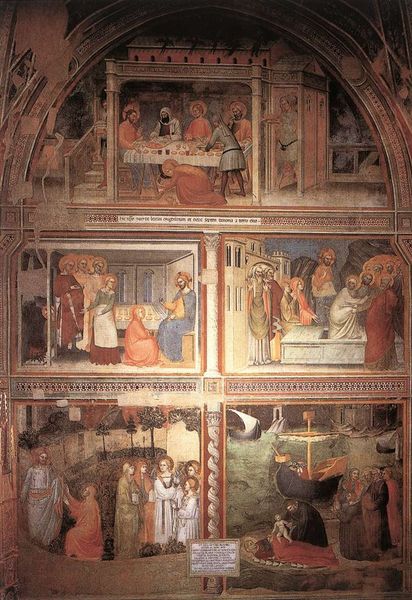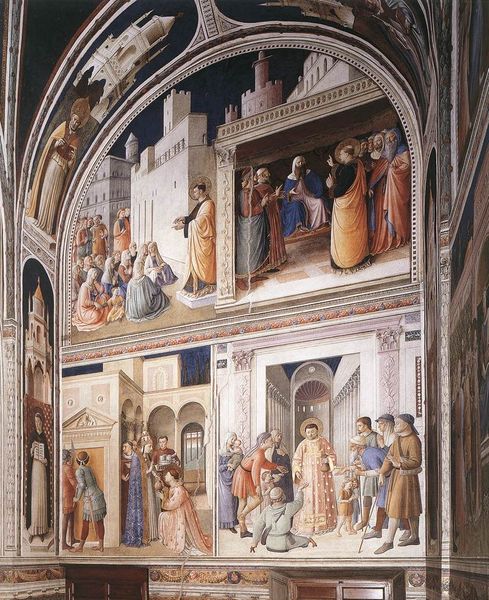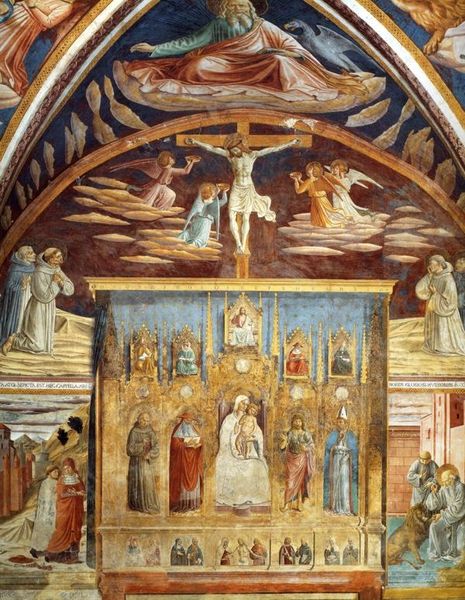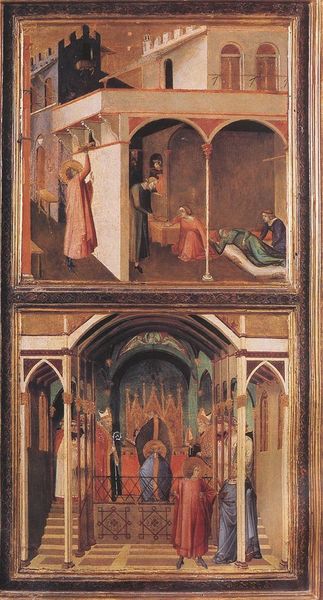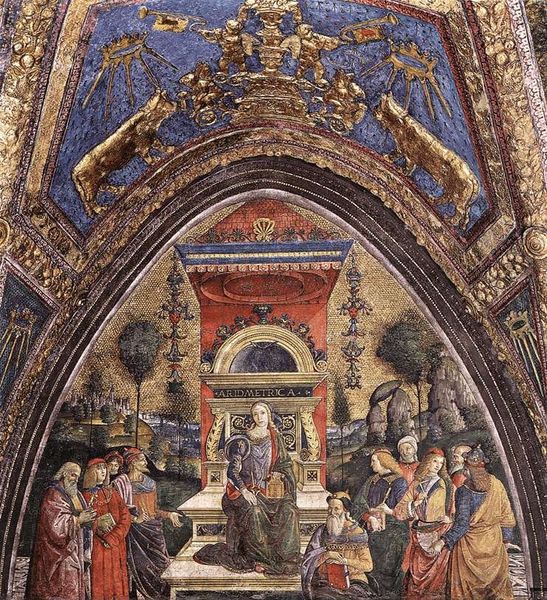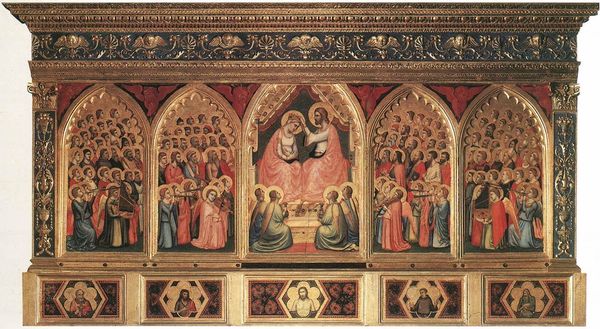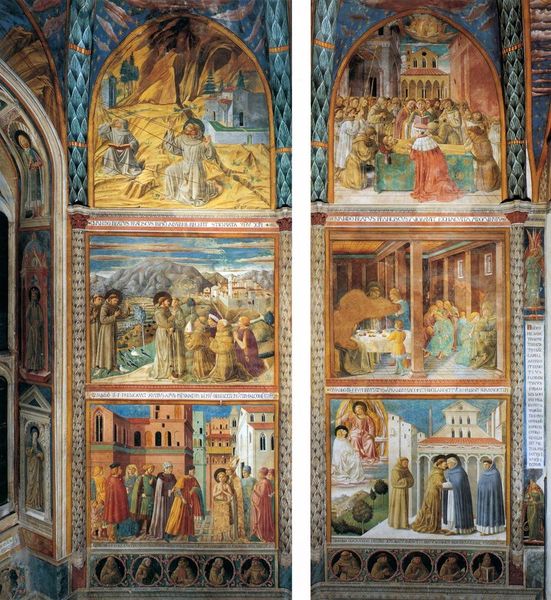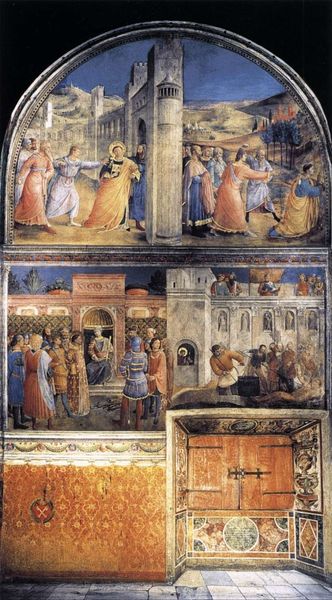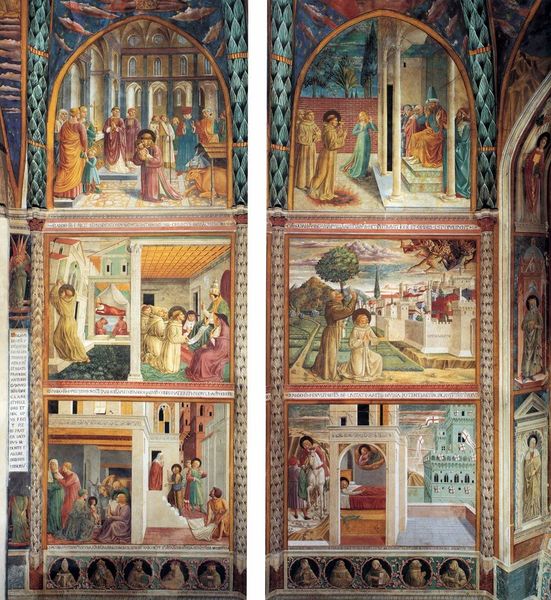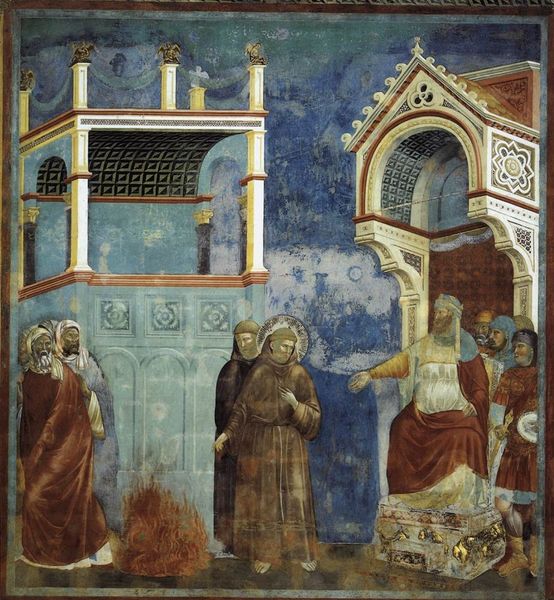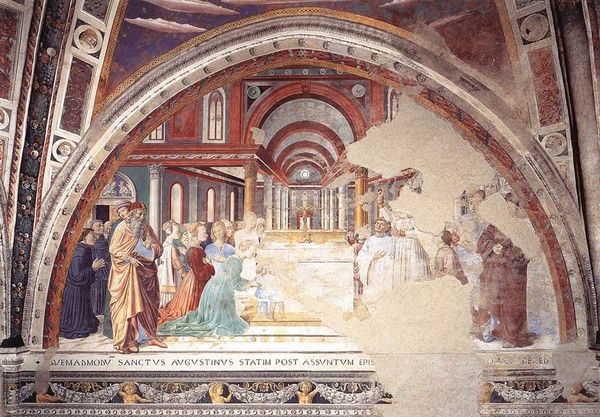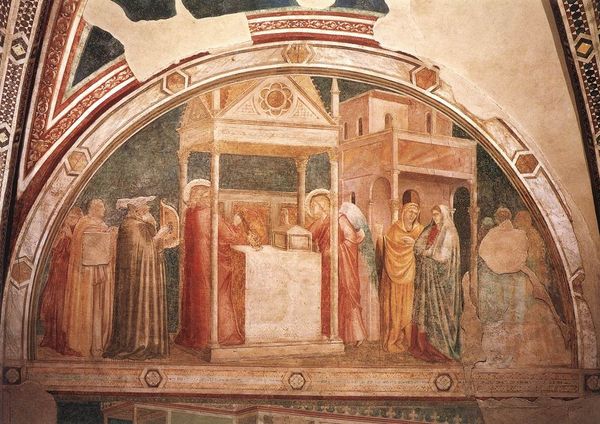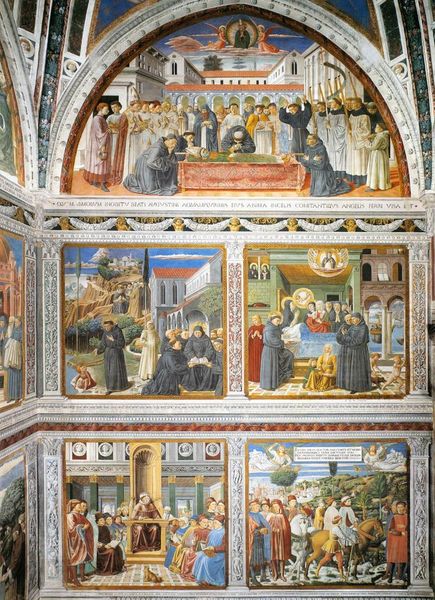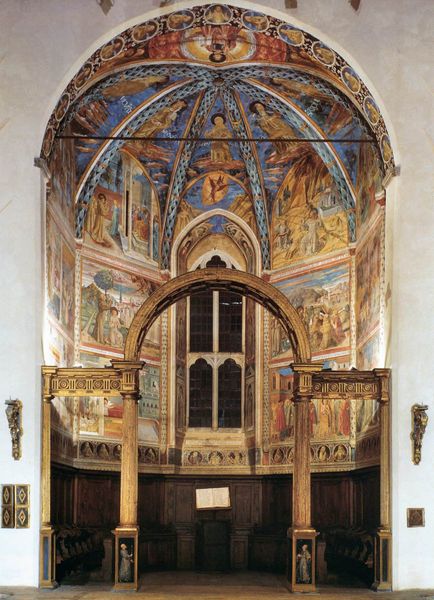
tempera, painting, fresco, photography
#
medieval
#
narrative-art
#
tempera
#
painting
#
sculpture
#
gothic
#
holy-places
#
perspective
#
figuration
#
fresco
#
photography
#
group-portraits
#
genre-painting
#
history-painting
#
italian-renaissance
Copyright: Public domain
Editor: Giovanni da Milano’s tempera on panel work, "Scenes from the Life of the Virgin" from 1370 presents a collection of different narrative moments. The arrangement is very intriguing; what strikes you when you look at it? Curator: It’s a powerful encapsulation of how art served the socio-political needs of the church during the late Medieval period. The didactic nature is evident, presenting the Virgin’s life as a series of carefully staged events reinforcing religious doctrine. Notice how each scene is framed architecturally, creating separate stages almost like a medieval theatrical production. This division controls how the viewer engages with each episode. Editor: Yes, they are like stages! So, the artist is using these "stages" to reinforce something? Curator: Exactly. The controlled perspective and grouping of figures – especially when observed within the gothic architectural elements – are calculated. Giovanni da Milano wasn’t simply illustrating biblical stories; he was presenting a vision of order and hierarchy sanctioned by the church and, in turn, sanctioning the wealth of its patrons. Consider how frescoes, such as these scenes, acted as visual propaganda in a largely illiterate society. Do you think the fresco form would change later on? Editor: Perhaps! It's incredible to realize how interwoven art, power, and social control were. Thinking about the societal influence adds another layer of depth. I will definitely remember that in future viewings. Curator: Indeed! By considering the art within its specific historical and social framework, it allows us a greater, more critical understanding.
Comments
No comments
Be the first to comment and join the conversation on the ultimate creative platform.
